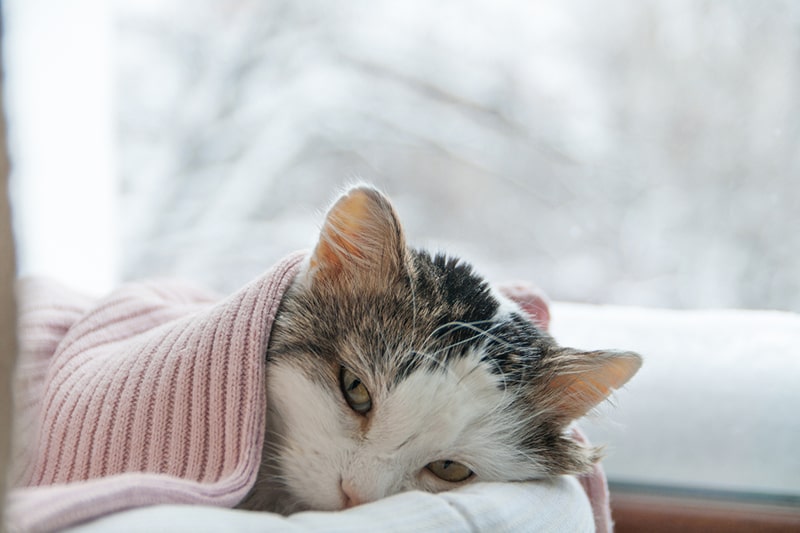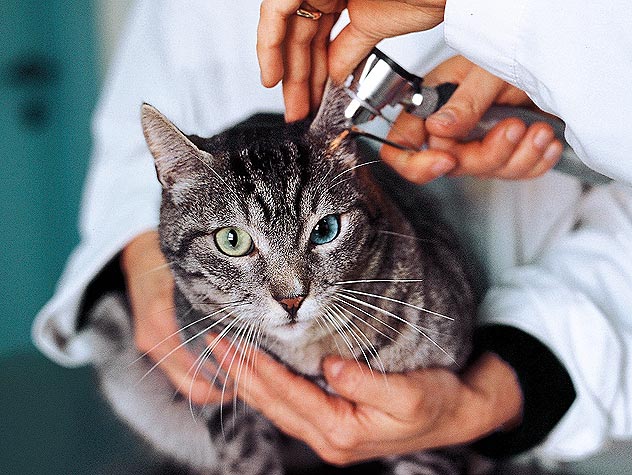
As the avian flu spreads and becomes more widespread, pet owners should be aware of the dangers that the virus poses to both animals and humans. In this article, we’ll discuss the risks associated with avian flu in cats, and give you tips on how to keep your feline friend safe.
Domestic cats are susceptible to avian influenza A H5N1, and they can spread the disease to other cats, according to a study published in the Sept. 2 online edition of Science magazine.
The study bolstered anecdotal evidence that domestic cats and captive wild felids can be infected with this deadly strain of avian influenza by eating infected chickens. The findings raise new questions about the role cats may play in spreading the disease among poultry farms, and may suggest another route of human exposure to the virus, according to the study’s authors.
Avian Flu in Cats

In the study, led by Thijs Kuiken, a veterinary pathologist in the Department of Virology at Erasmus Medical Center in the Netherlands, one group of cats was intratracheally inoculated with H5N1 virus isolated from a human in Vietnam who died, another group of cats was exposed to other cats that had been inoculated with the virus, and a third group was fed chicks that had been inoculated with the virus. All three groups developed signs of disease, according to the study
Dr. Carol J. Cardona, a University of California-Davis extension veterinarian, cautioned that the results of the study are preliminary and more research will be necessary to determine whether cats indeed serve as a reservoir for the disease. Because the United States is free of the H5N1 strain, there is no threat that domestic cats could spread the virus on U.S. poultry farms, Dr. Cardona said. The study’s findings do, however, reinforce long-standing veterinary advice that cats should not be allowed on commercial poultry farms. Dr. Cardona explained that cats are a biosecurity threat because they can serve as mechanical vectors of diseases on poultry farms. Dr. Cardona said she is not surprised that cats can be infected with the H5N1 strain of the influenza virus.” The only thing predictable about influenza viruses is that they are unpredictable,” she said.
This study provides new evidence that mammal-to-mammal transmission of the H5N1 strain of the influenza virus is possible. The study should serve as a reminder to veterinarians to be vigilant, Dr. Cardona said.” I think (veterinarians) need to be aware of the clinical signs of avian influenza in chickens and other birds, and recognize that not all avian viruses are going to stay in birds,” she said.
From the AVMA (American Veterinary Medical Association) Website

After reading this blog article, it is clear that avian flu may cause serious health issues in cats. In such cases, a proper treatment is critical to ensure that the animal recovers quickly and without any complications. At Animals As Leaders, we always offer our clients expert care when it comes to managing these types of emergency cases.Let us know if you have any more questions or concerns about avian flu in cats today!
Frequently Asked Questions
How does avian flu affect cats?
There had been unverified reports of H5N1 HPAI infection in household cats in Southeast Asia prior to these occurrences. Although the clinical symptoms of infected cats have not been fully characterised, they may include fever, listlessness, conjunctivitis, respiratory difficulties, and even death.
Should I be worried about the avian flu?
There had been unverified reports of H5N1 HPAI infection in household cats in Southeast Asia prior to these occurrences. Although the clinical symptoms of infected cats have not been fully characterised, they may include fever, listlessness, conjunctivitis, respiratory difficulties, and even death.
Can the avian bird flu affect cats?
Cats are capable of contracting and transmitting influenza viruses, especially avian influenza viruses (cat-to-cat).






